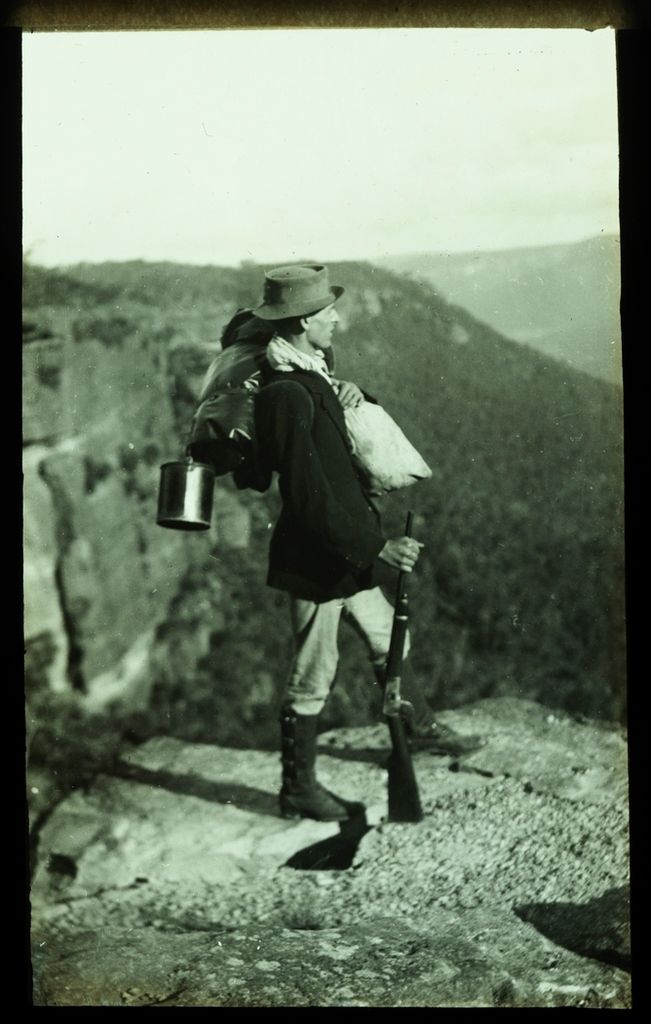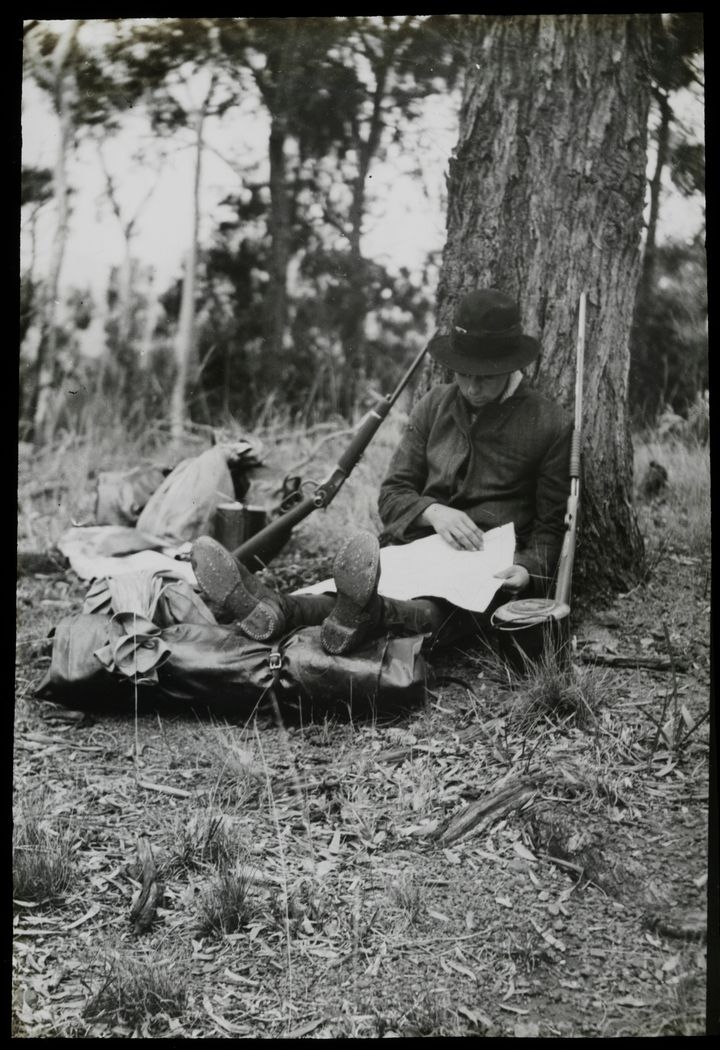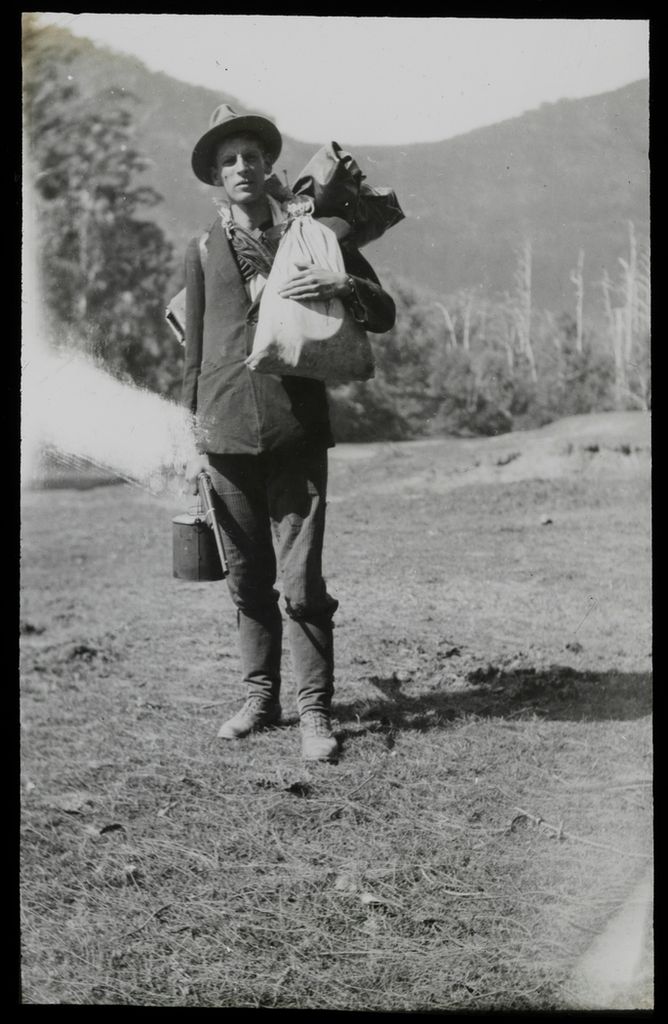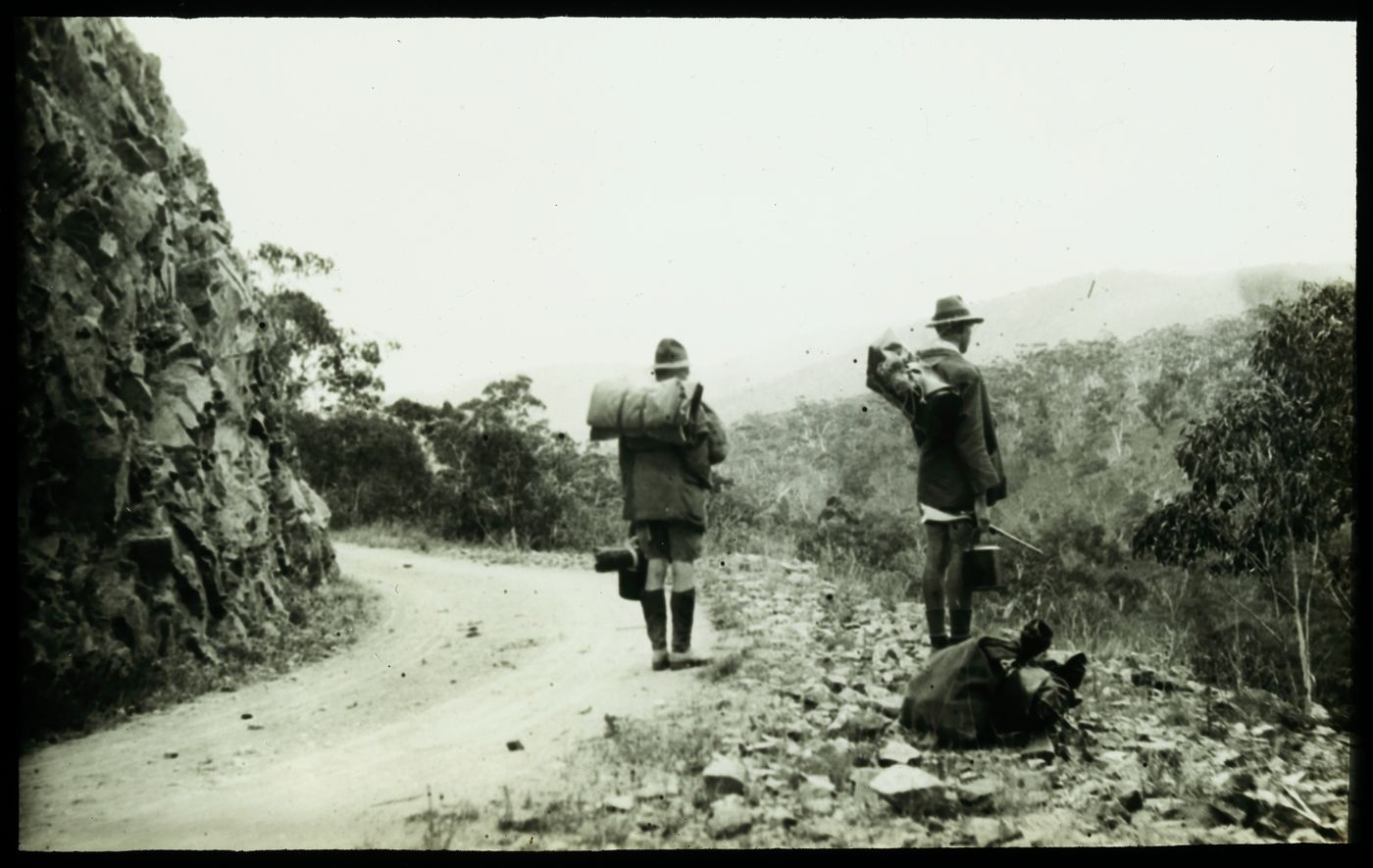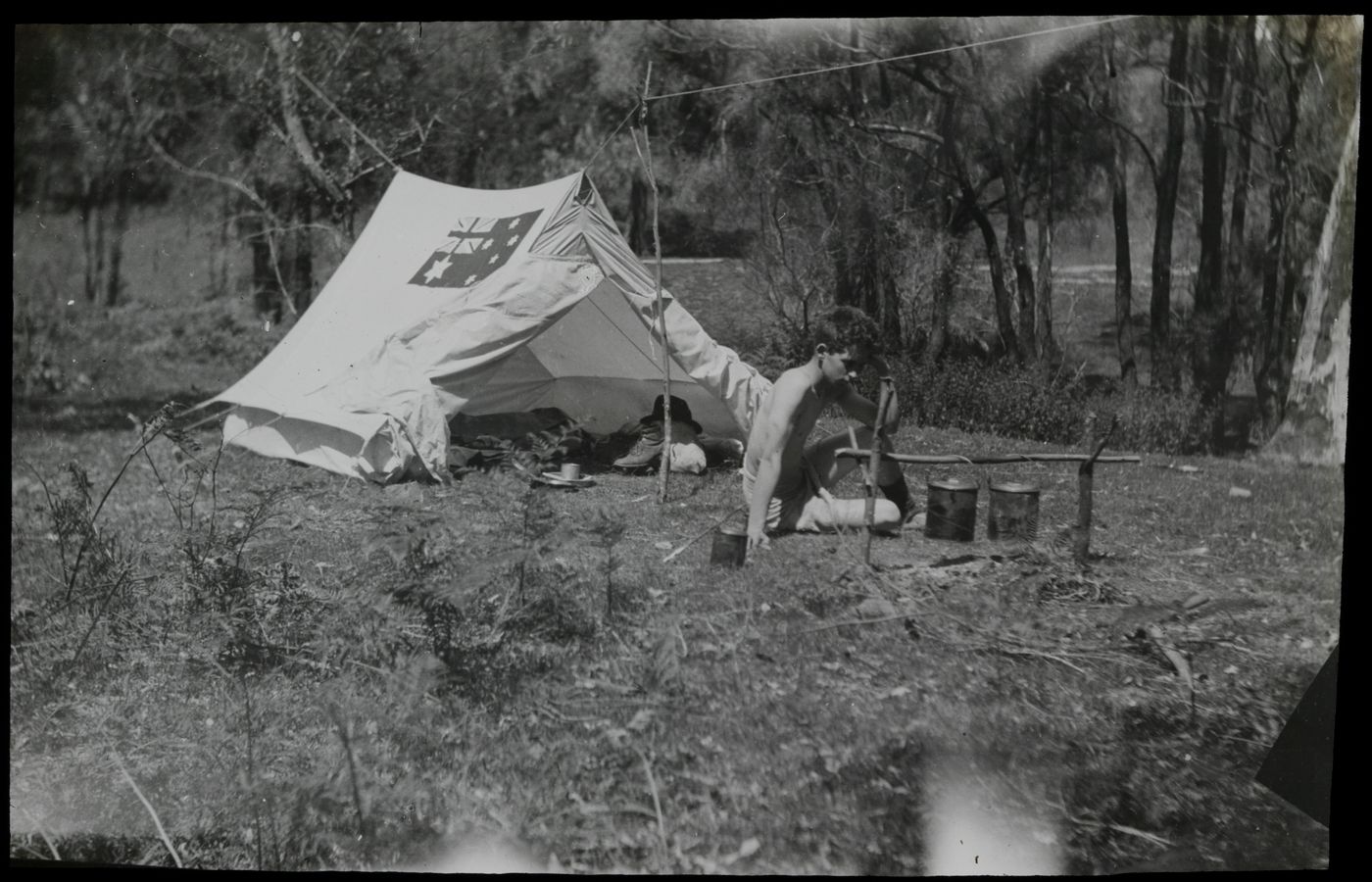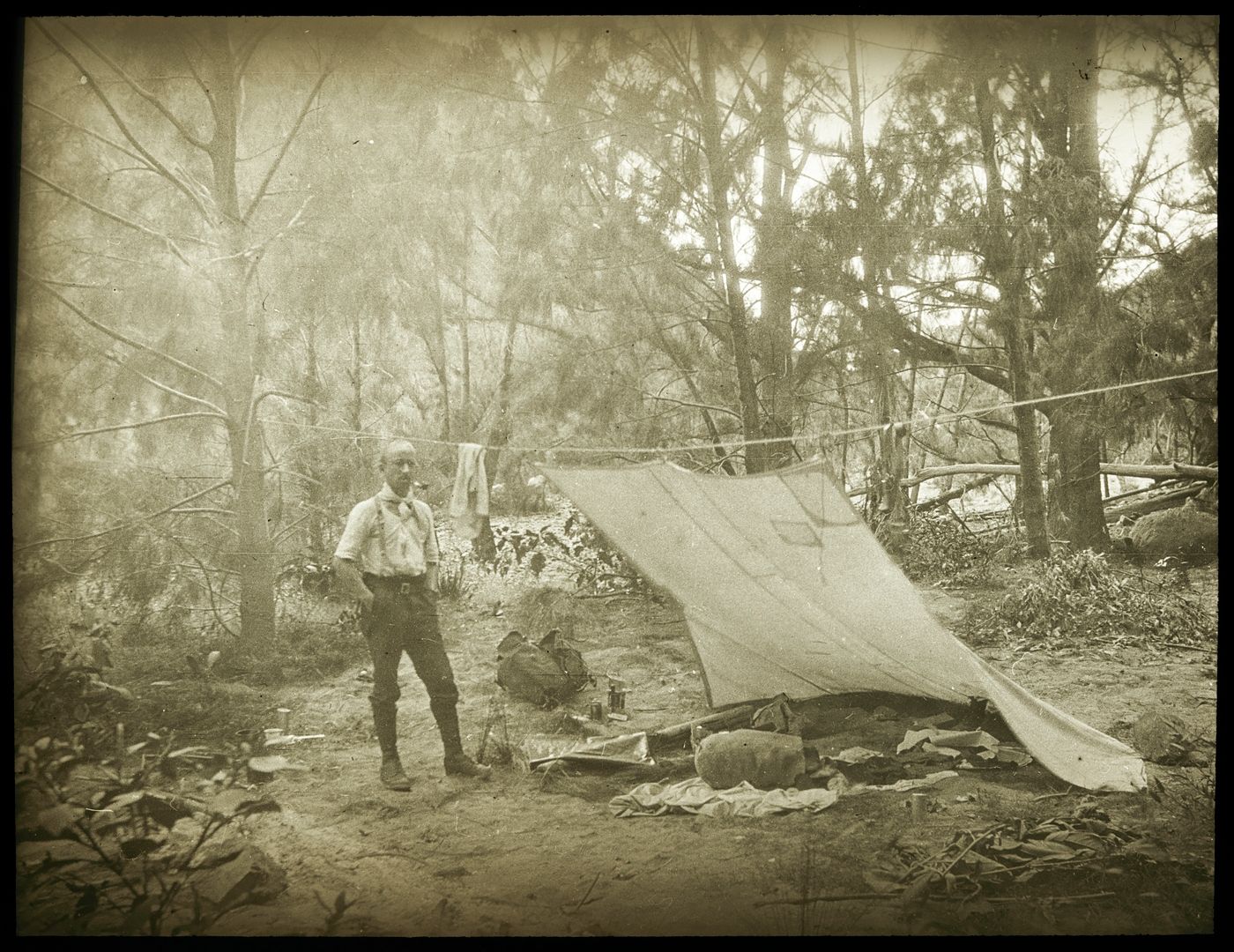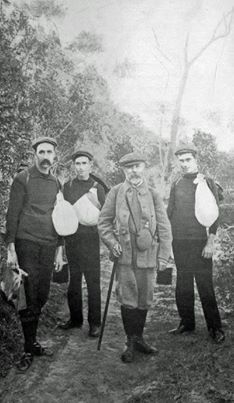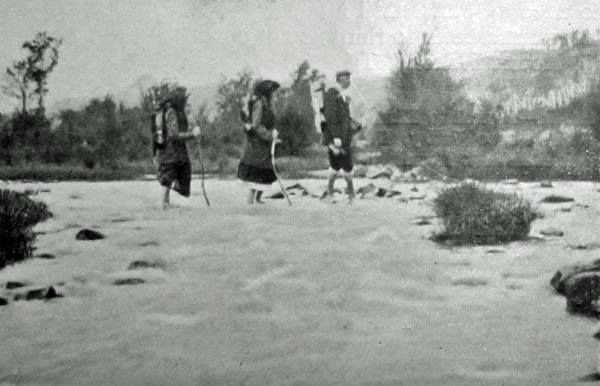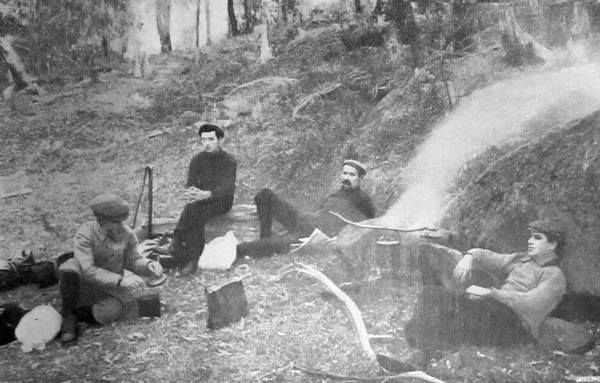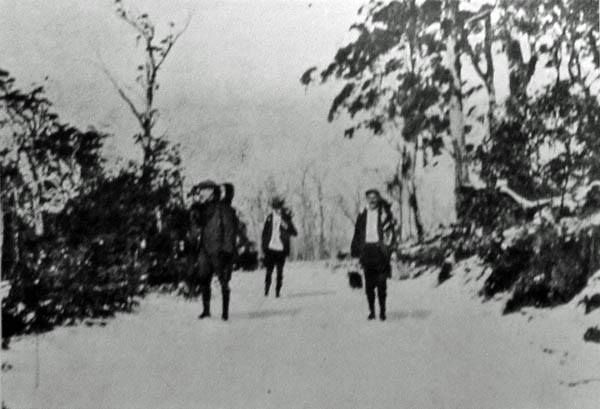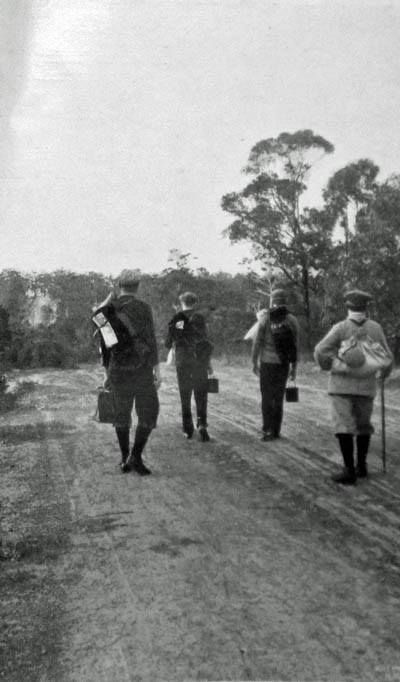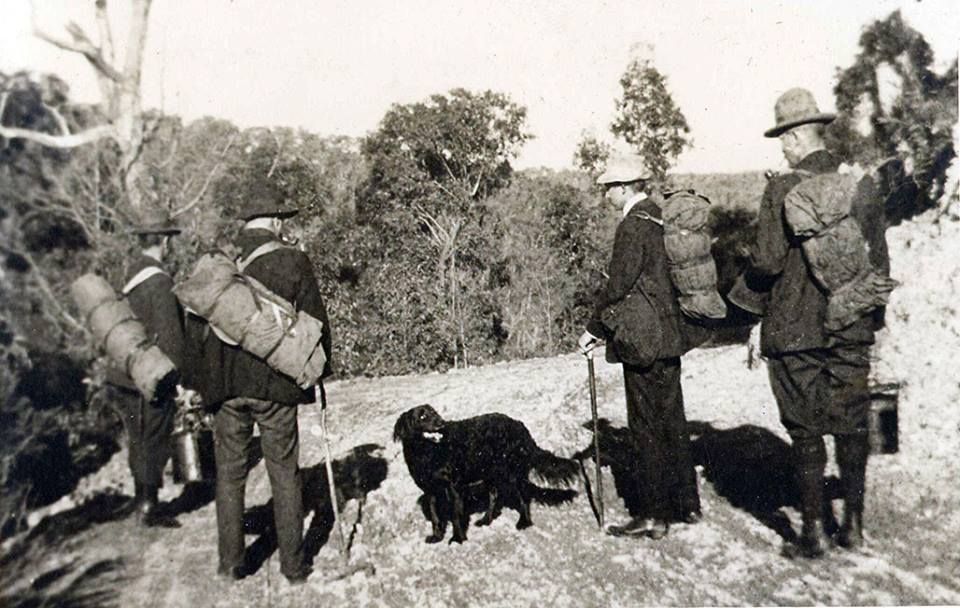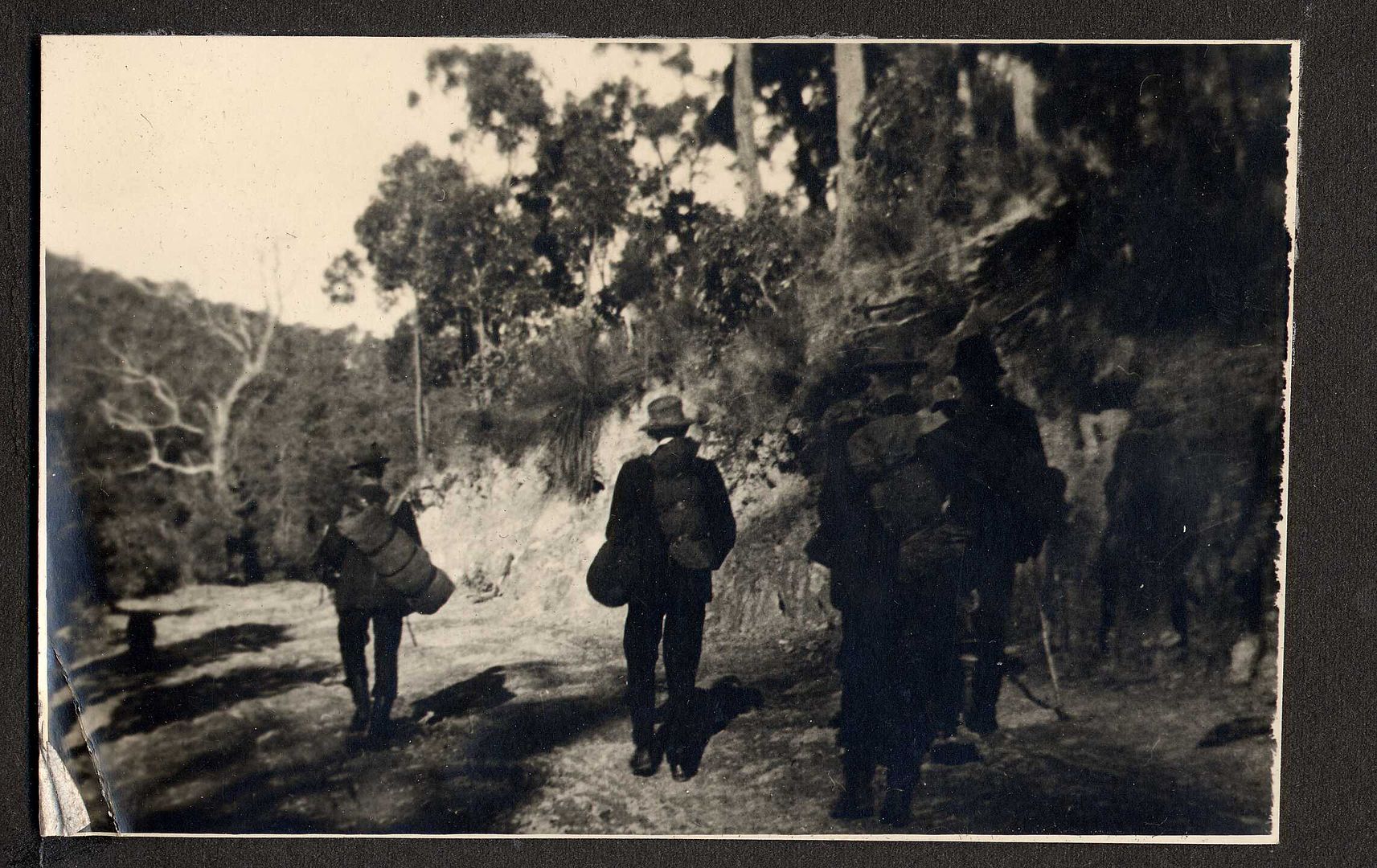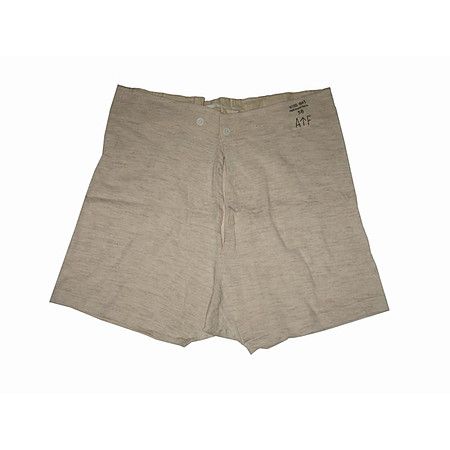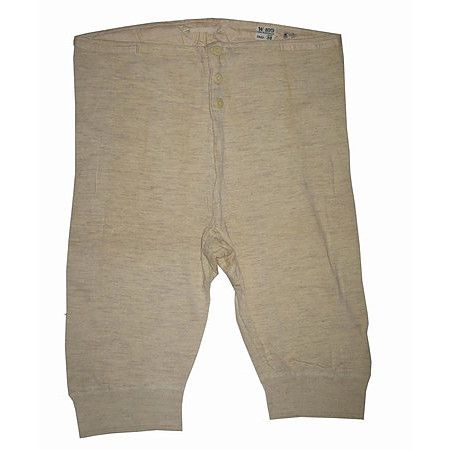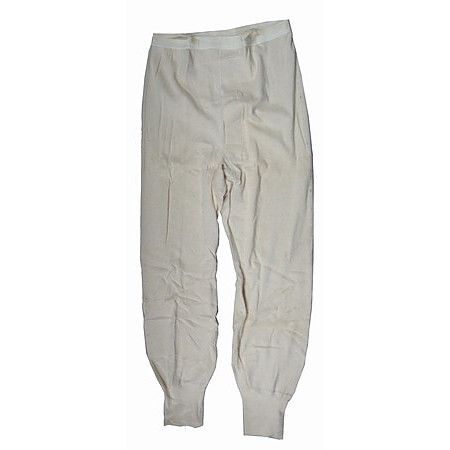@Alex, I was SO wanting to participate in your Dunphy trip back in 2014, but it was only about a week after I'd done a Katoomba to Mittagong and I didn't think I'd have been up to it

If you ever do another one following that same route I'll be in it for sure. I'm Craig from the "Vintage Bushwalking and Camping" Facebook group - you'll probably recognise some of my pics below.
@Bruce, to answer your initial question "Anyone interested in traditional bushwalking. Hobnails, Japara, no stoves etc.?" My answer is a resounding "hell yes".
I use japara tents and tarps, hobnailed boots, A-frame rucksacks or bushwalking swags. Here are some brands and model names of my gear that some of the older bushwalkers on the forum may recall: Thomas Evans 4-man japara tent, Paddymade 2-man "A" tent, Paddymade 4-man "Tassie" wall tent, Paddymade 2-man "Glen" wall tent, Paddymade "Deluxe Federation" A-Frame rucksack, Paddymade "Explorer" H-frame rucksack, AR Broad A-Frame Rucksack, Karrimor Tote'em Senior H-frame rucksack, Paddymade "Kiandra" superdown sleeping bag, Army Bergan A-Frame rucksack, army jungle hammock...
I do "themed" walks - overnighters mainly - where I'll use a japara tent and an A-frame rucksack, or maybe a bushwalking swag and nosebag.
In April I'm doing the KtoM again, but this time using all traditional gear (swag and nosebag).
It's pretty easy to get into traditional walking and doesn't cost the earth either. You just have to select gear with multiple uses and have an open mind

Here's some recent pics (2015/2016) showing gear in use on traditional trips -
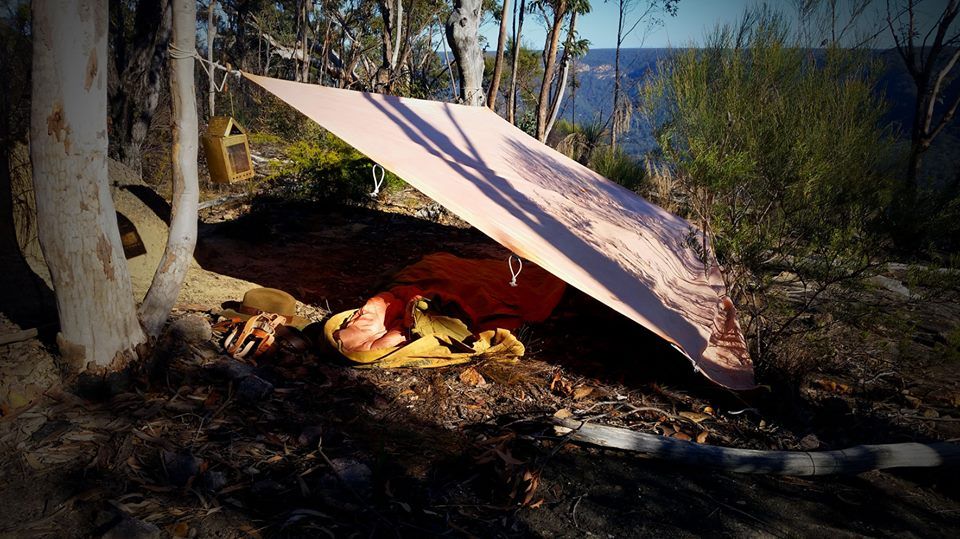
About two weeks ago. A swag walk to that spot just before Ahearns in the Nattai. Spectacular sunset photography from that spot. You can see swag, japara tarp, brass candle lantern, etc.
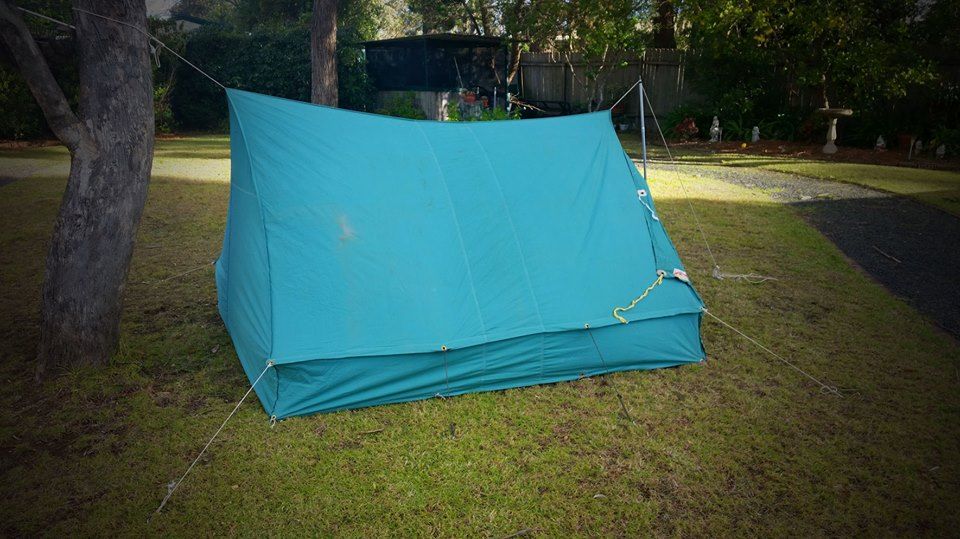
Not an outdoors shot, but one of my japara tents. This one is a Thomas Evans 4 man japara tent made in Melbourne in the 1950s or 60s.
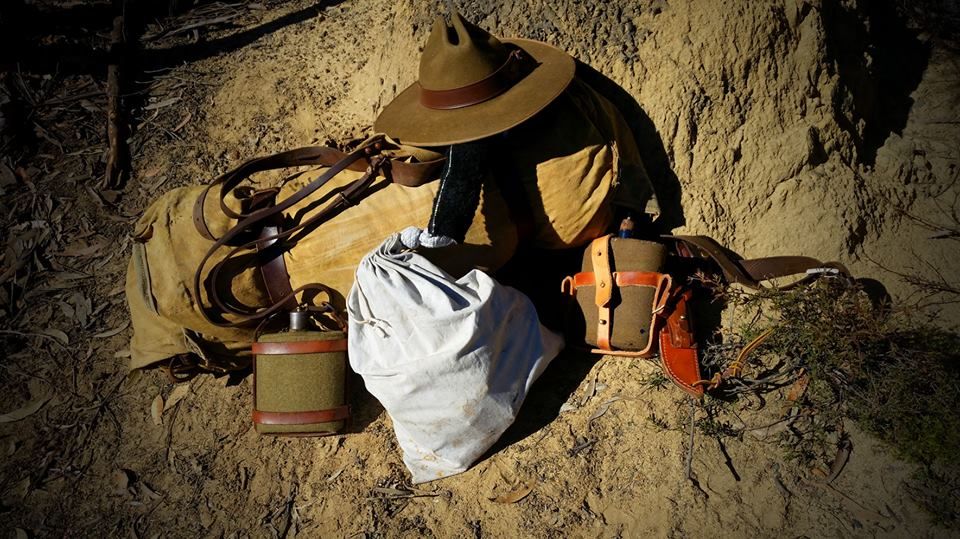
Swag set up for carry. Including 3 litres of water (one on belt, one slung from the shoulder and another in the nosebag), total carried weight was approx 9kg.
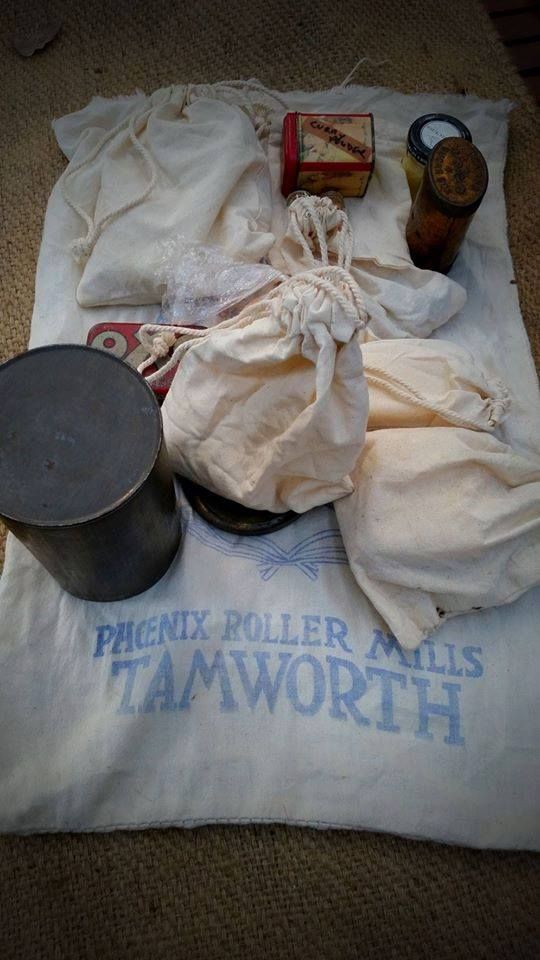
Tuckerbag contents - all carried in old flour bags or calico drawstring bags. Flour, biscuits, rolled oats, dried meat, dried beans, dried vegetables, fruit, rice, tea, coffee, sugar, curry powder, etc. For an overnighter, fresh hard vegetables, bacon and a steak are sometimes carried. If it's wet I have a collection of light mackintosh drawstring bags which will keep things dry short of the nosebag becoming submerged.
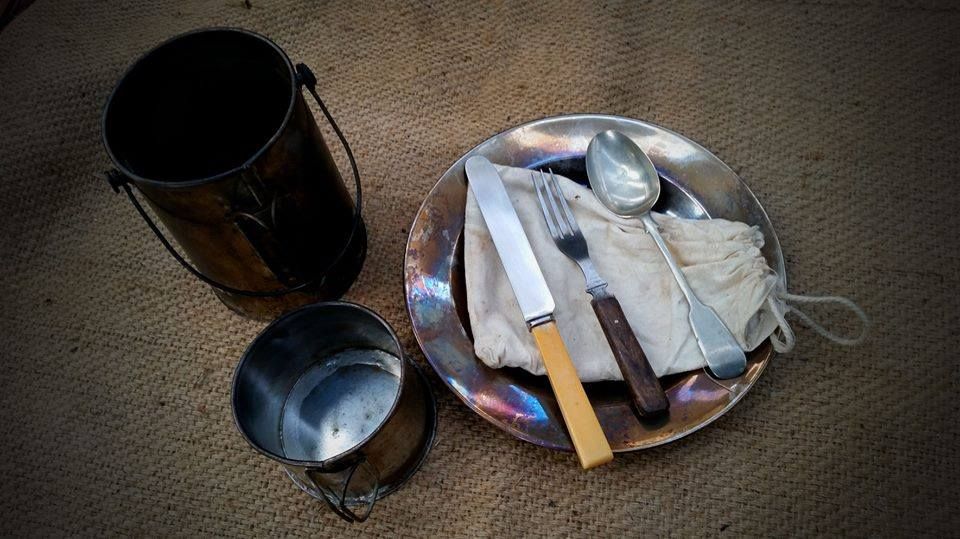
Cooking & eating gear. Traditional tinware quartpot and pannikin, tin plate (doubles as a frypan), vintage knife, fork, spoon. Often the KFS is replaced by just a spoon and clasp knife. I will often carry a fencing wire grill if I'm taking fresh food for the first day or two.
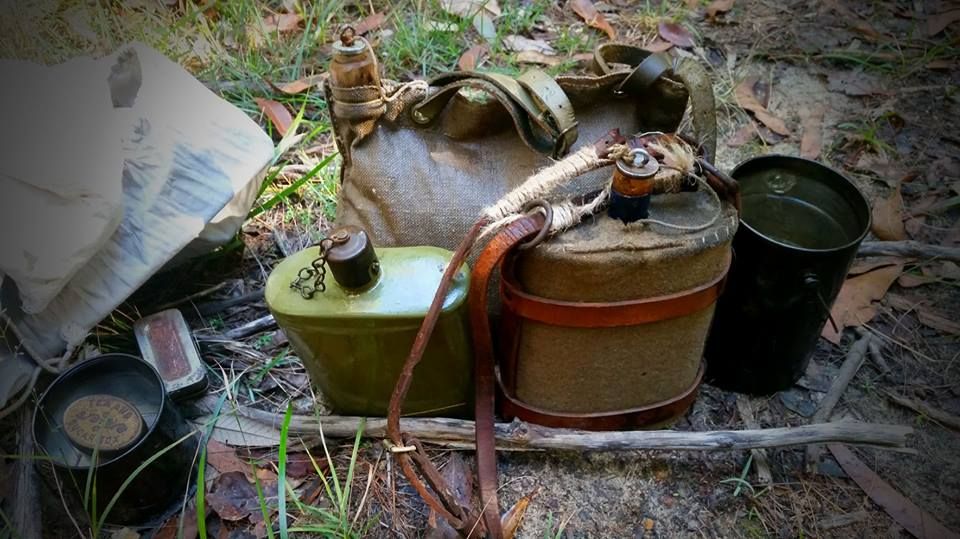
Water carriage options - flax water bag, water bottles and water hand-carried in the quartpot or in a billycan.
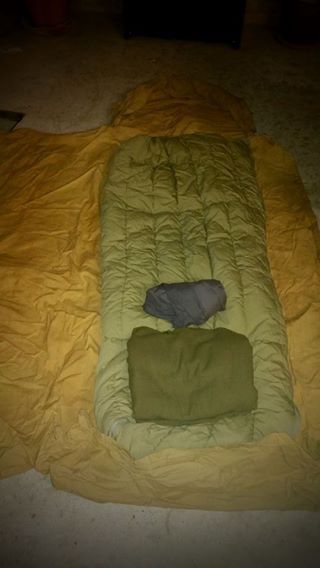
Bedding I've been using this winter - traditional 1940s-vintage canvas swag, 1940s down sleeping bag, light wool blanket (an army horse blanket), cotton sleeping bag liner used as a paillasse by filling with sheaok needles, leaf litter, etc. This winter I also trialled using broadsheet newspaper sheets on top of the groundsheet and under the swag. Works very well for adding extra insulation and weighs nothing.
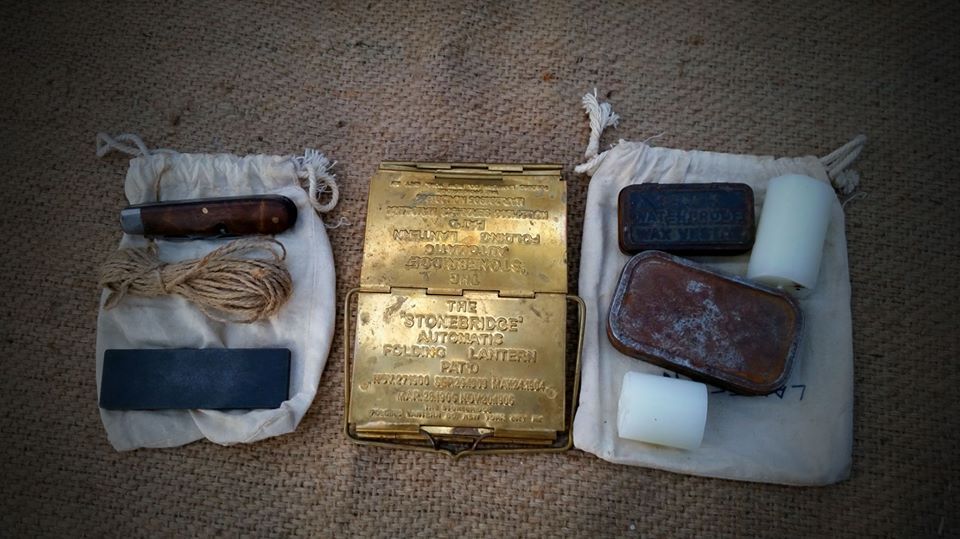
Some bits and pieces carried in the pockets and nosebag - clasp knife, bit of string, small whetstone, folding brass candle lantern, a couple of candles, strike-anywhere vestas (British Swan Vestas in an old Bells Wax Vestas tin), traditional flint and steel kit (piece of file, gun flint, charred cloth, dried puffball, slow match and tube) in a tobacco tin.
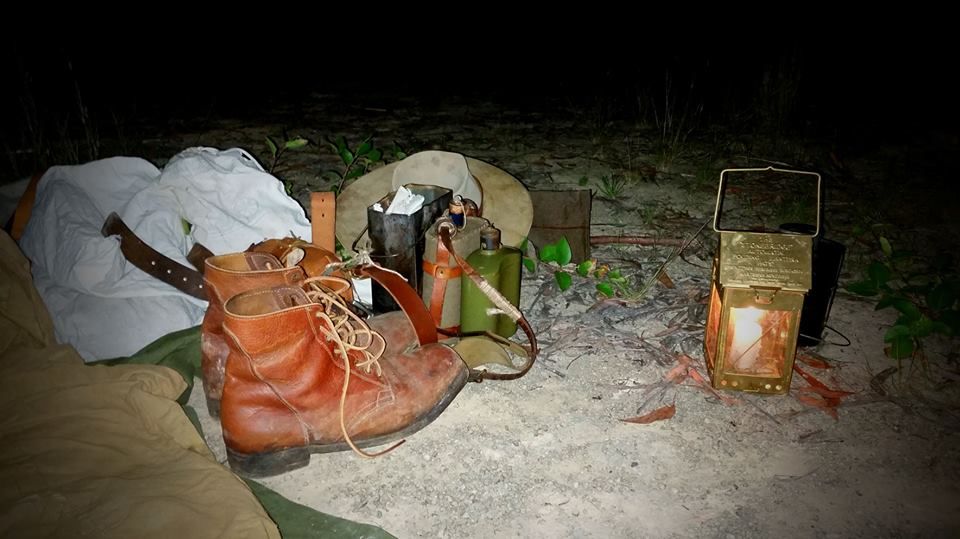
This is the only pic I have showing my traditional boots. Repro WWI boots with hobnails, blakeys and heel irons. I don't have tricounis like Alex's boots in his pic above. Before I had the leather-soled boots I used a pair of Rossi Mulgas.
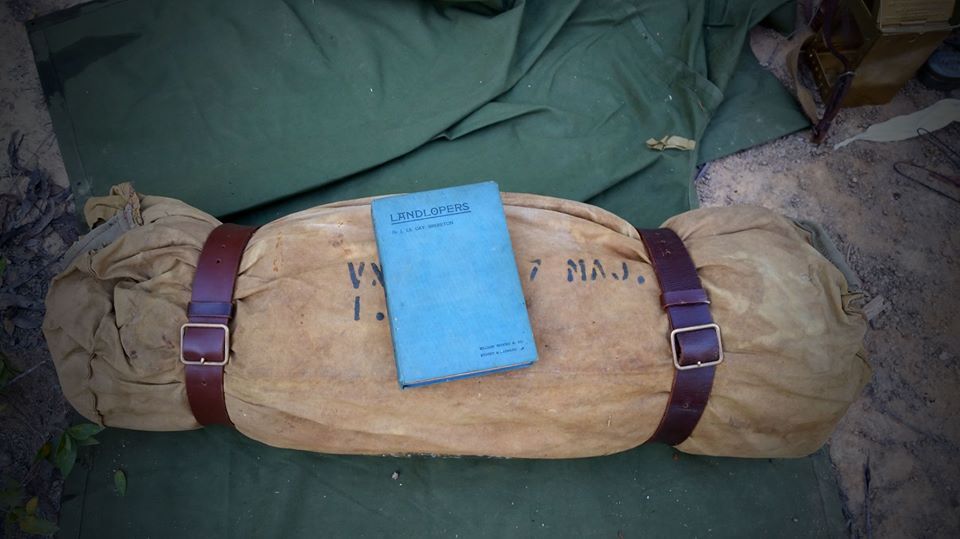
If you're interested in seeing what you can learn from the old timers, John LeGay Brereton's book "Landlopers" is packed with wisdom. Search for it on Project Gutenberg Australia for an online copy.
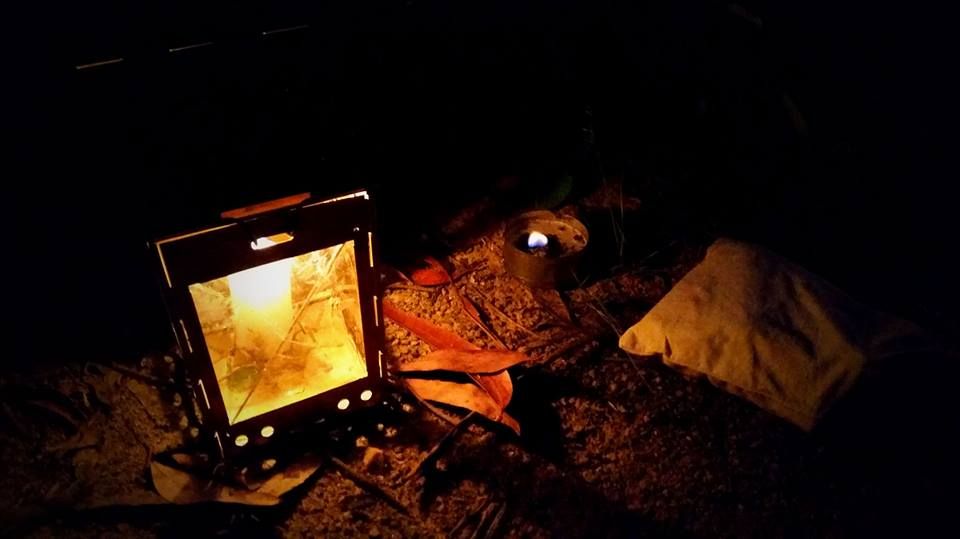
As those who use UCO candle lanterns will no doubt agree, there's nothing nicer than settling down with a bush-brewed cuppa by the soft light of a candle lantern.
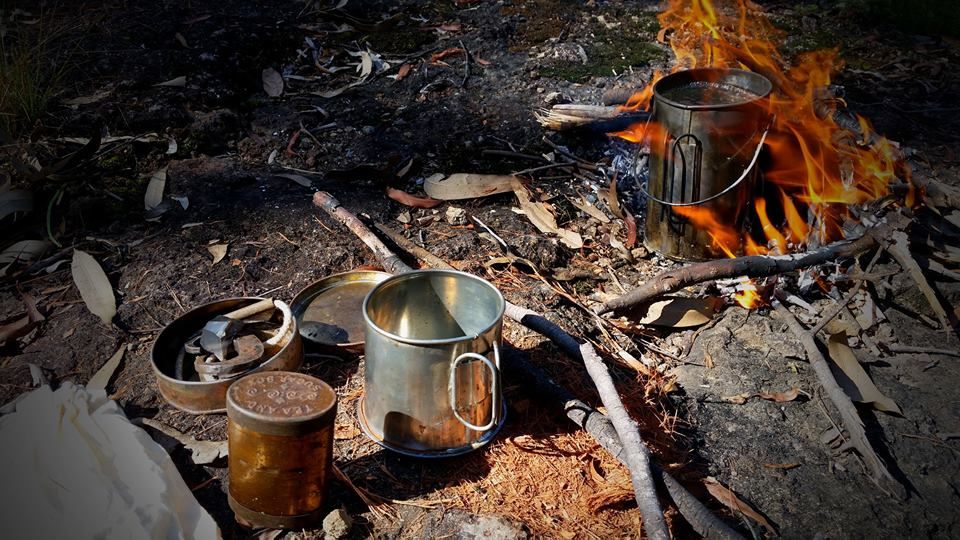
Quart pot on the boil. The quartpot and pannikin is a vital part of my traditional equipment.












